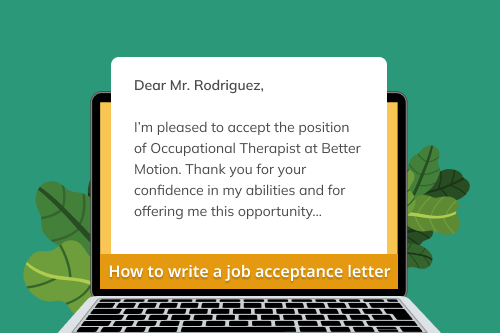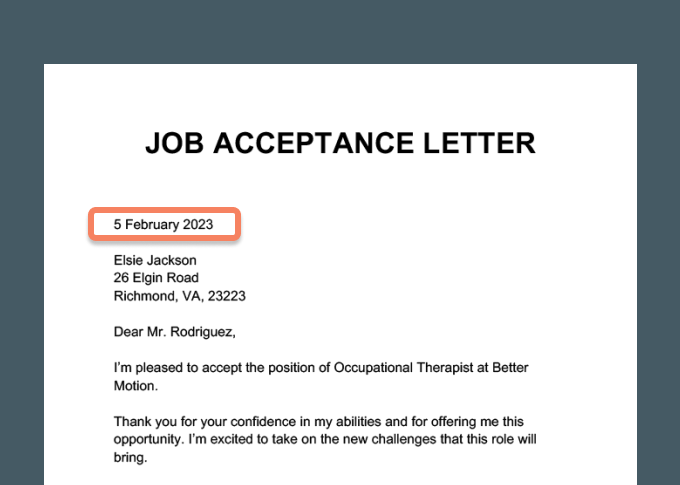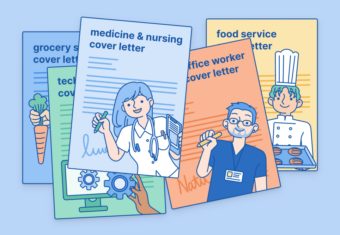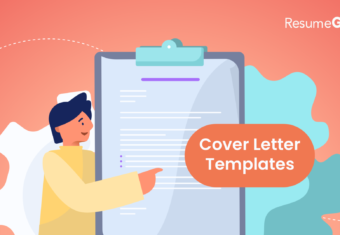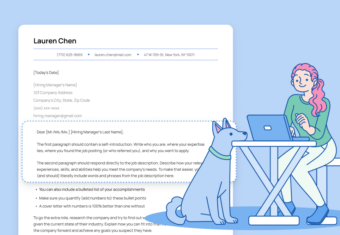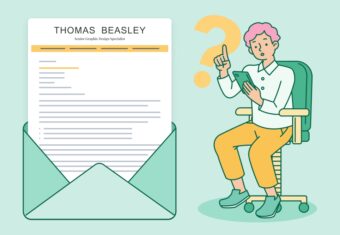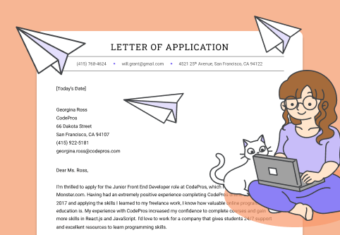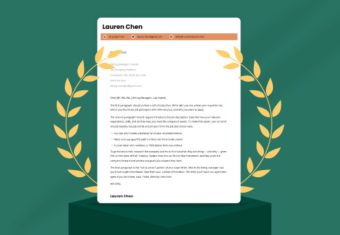The job hunting process can be challenging. But if you’ve already received a job offer, that means the hardest part is over.
All you need to do before you make a new job announcement is to formally accept the offer. Keep reading to learn how to write a job acceptance letter.
How to write an acceptance letter for a job in 7 steps
To help you get started, here are seven tips on how to write an acceptance letter for a job:
1. Include the date
The first thing you should put on your job acceptance letter is the date. Include it underneath the header close to the top of your letter.
2. Add your contact information
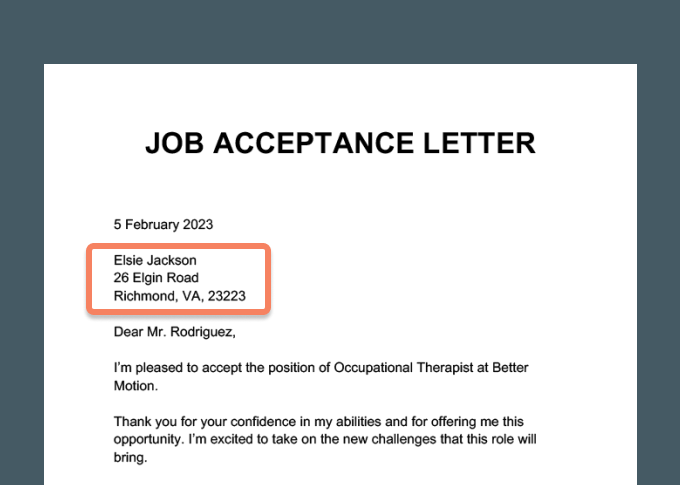
After adding your contact information, write down your:
- Name
- Address
- Phone number or email (optional)
3. Use a proper salutation
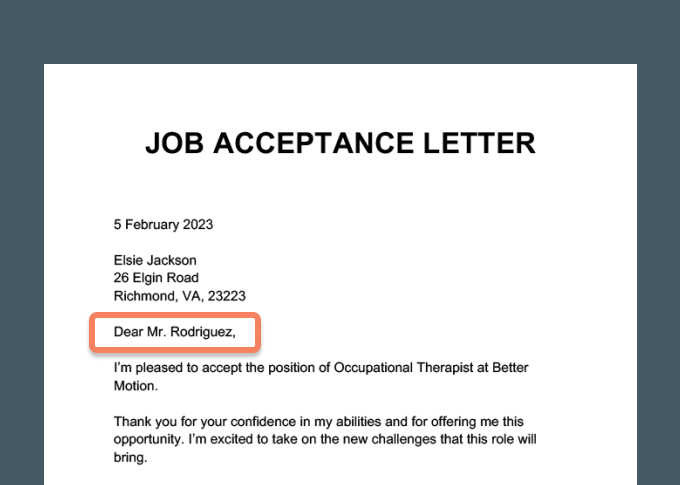
When writing an acceptance letter for a job, you want to leave a positive impression on your new employer. The perfect salutation for a job is professional and specific, for example:
Dear Mr. Taylor
Dear Ava Diallo
At this point you should know the name of your employer, so avoid generic greetings like “Dear Sir or Madam” and “To Whom it May Concern”.
4. Thank the employer for the opportunity
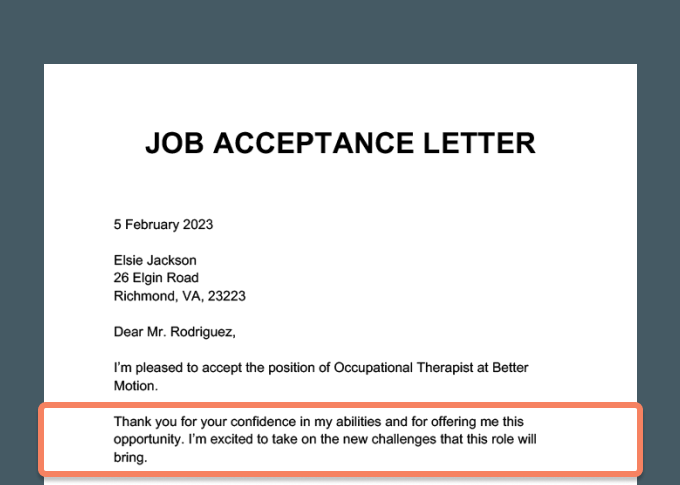
Just like when you decline an offer of employment, you should thank the employer when writing an acceptance letter. This ensures you come across as appreciative of the opportunity to join the team.
This paragraph doesn’t need to be very long. A simple thank you followed by one or two sentences explaining why you’re excited to take up your new position will do.
5. Accept the terms of employment
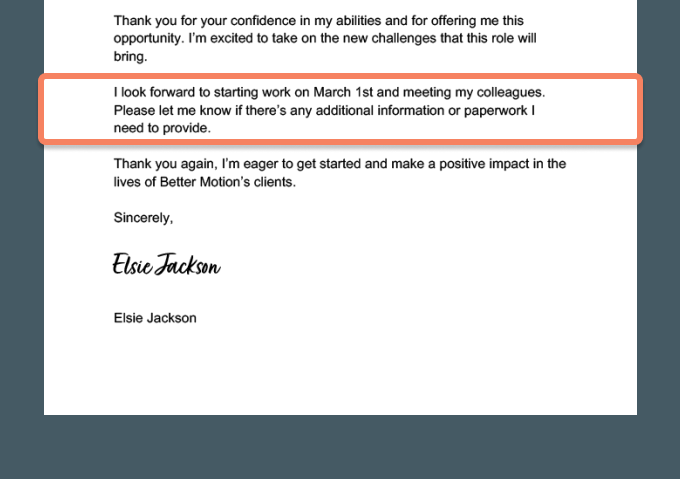
This is the most important part of your job acceptance letter. It’s where you agree to the terms and conditions of your employment laid out in the offer letter.
This includes details like your:
- job title
- salary
- benefits
- start date
By accepting the terms of employment, you’re confirming that you understand and agree to these terms. So, if you’re not entirely satisfied with the salary or benefits offered, write a counter offer letter to discuss these details before you accept the job.
Keep in mind that an acceptance letter is not the same as a contract, and it’s not legally binding. Even if you sign your acceptance letter and agree to the terms laid out by your employer in their offer letter, until a contract is signed, the employer could still withdraw or change the terms of employment.
6. Sign your acceptance letter
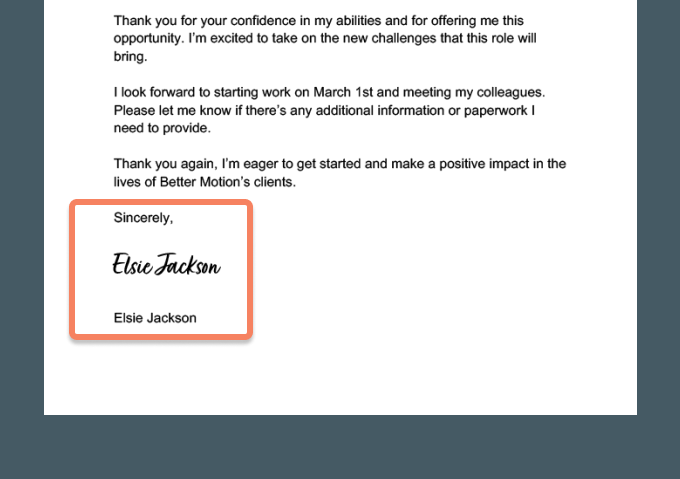
Once you finish writing your job acceptance letter, type your name at the bottom and add your signature.
This can be done either by hand if you’re mailing your letter, or by using an electronic signature if you send your acceptance letter as an email attachment.
7. Proofread

A well-written job acceptance letter that is free of grammatical errors and spelling mistakes demonstrates your attention to detail right off the bat.
Even if you use a spellcheck program, take a few minutes to proofread your job acceptance letter before you send it off to make sure it didn’t miss anything.
Job acceptance letter sample
Here’s a job acceptance letter sample along with a text version for you to copy:
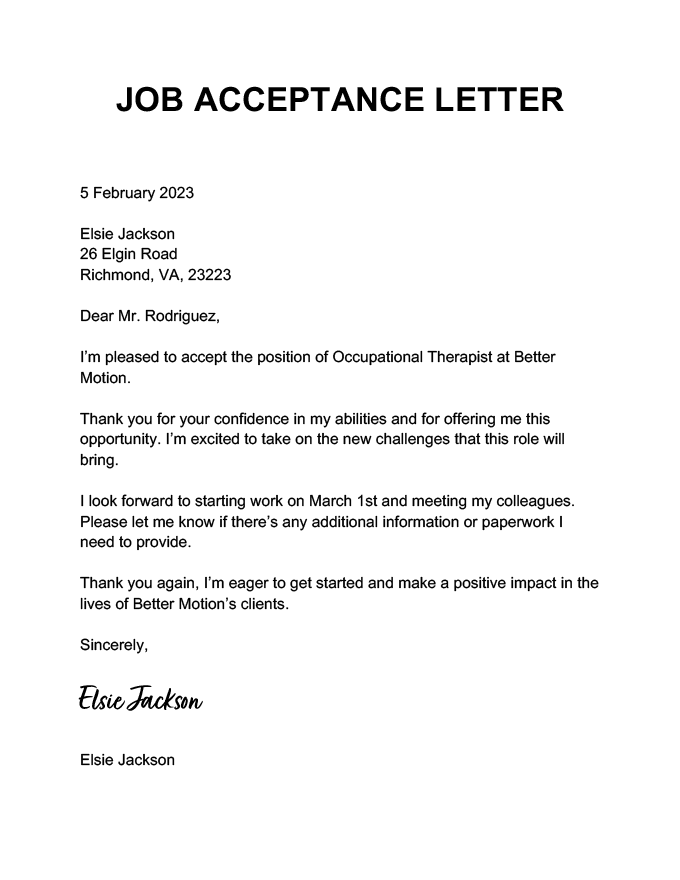
Job Acceptance Letter Sample (Text Version)
5 Februrary 2023
Elsie Jackson
26 Elgin Road
Richmond, VA, 23223
Dear Mr. Rodriguez,
I’m pleased to accept the position of Occupational Therapist at Better Motion. Thank you for your confidence in my abilities and for offering me this opportunity. I’m excited to take on the new challenges that this role will bring.
I look forward to starting work on March 1st and meeting my colleagues. Please let me know if there’s any additional information or paperwork I need to provide.
Thank you again, I’m eager to get started and make a positive impact in the lives of Better Motion’s clients.
Sincerely,
Elsie Jackson
Click to rate this article
4.4 Average rating


